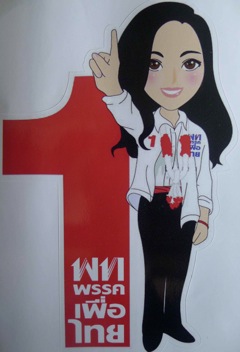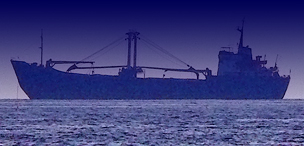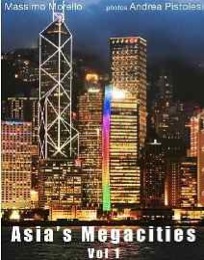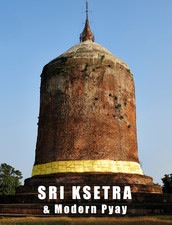Jul 2011
The ghost ship
13/07/11 04:10 Filed in: Logbook
There is a ghost ship. An old rusty tramp steamer, one of those boats that go wherever there is cargo to be loaded. It has been lingering in South-East Asian waters for months waiting for cargo.

At the moment it is moored off a long beach on the edge of a large city. From the beach, it looks like just another part of the view. At night all you see are a few lights twinkling on the deck.

Even the crew are ghosts. They too are tramps, vagabonds who have sold themselves for a two-dollar-a-day pay check.
From on board they look towards the coast, the beach and the city. They would like to disembark, feel the sand under their feet, walk amongst the buildings or buy something at one of the local eateries lit up with coloured lights. Perhaps even find a woman.
But they can’t do any of that, they have to remain ghosts. If they went ashore, they would become men. Or rather, sub-men with no legal identity. They would be put in jail and would probably stay there for a long time. No one would come to free them. And they would lose what little they do have.
That’s why these ill, hungry and desperate ghosts stay on board. They are waiting for the ship owner to pay them and send them back home. In the meantime, they catch fish to survive.
There is only one woman who can help them. She works for charity and sailor protection organisations. She has taken water, rice and chocolate on board. And a phone card. She is the only person that can protect them from Mr Lu, the ship owner. He’s another ghost, but a bad one. He never appears, but he sends the odd message to the captain. He wants to convince him to move elsewhere, where they will be able to repair the ship and set sail with a new cargo. But in those waters there is no possibility of outside help or control. Not to mention that, while sailing to other coasts, the ship may well disappear on the high seas.
For now, the woman and the crew still hope that the ship owner will decide to pay them. If he doesn’t, the final resort would be to report him for human trafficking. In that case the eleven men on board ship would be deported. But they would be going home penniless.
This is just one of many stories of abandoned ships, of crews betrayed and replaced by other equally desperate people. This story quotes no names or nations, no acronyms or flags. That’s because it may still end well. If ending well means anything.
In the meantime many other stories are ending or still going on. There are people working like slaves on fishing boats, and they are the ones that vanish into thin air. There are still many murky areas in the beautiful waters of South-East Asia.
Link.
The International Maritime Organization
The International Committee on Seafarers' Welfare
International Transport Workers' Federation
Apostleship of the Sea

At the moment it is moored off a long beach on the edge of a large city. From the beach, it looks like just another part of the view. At night all you see are a few lights twinkling on the deck.

Even the crew are ghosts. They too are tramps, vagabonds who have sold themselves for a two-dollar-a-day pay check.
From on board they look towards the coast, the beach and the city. They would like to disembark, feel the sand under their feet, walk amongst the buildings or buy something at one of the local eateries lit up with coloured lights. Perhaps even find a woman.
But they can’t do any of that, they have to remain ghosts. If they went ashore, they would become men. Or rather, sub-men with no legal identity. They would be put in jail and would probably stay there for a long time. No one would come to free them. And they would lose what little they do have.
That’s why these ill, hungry and desperate ghosts stay on board. They are waiting for the ship owner to pay them and send them back home. In the meantime, they catch fish to survive.
There is only one woman who can help them. She works for charity and sailor protection organisations. She has taken water, rice and chocolate on board. And a phone card. She is the only person that can protect them from Mr Lu, the ship owner. He’s another ghost, but a bad one. He never appears, but he sends the odd message to the captain. He wants to convince him to move elsewhere, where they will be able to repair the ship and set sail with a new cargo. But in those waters there is no possibility of outside help or control. Not to mention that, while sailing to other coasts, the ship may well disappear on the high seas.
For now, the woman and the crew still hope that the ship owner will decide to pay them. If he doesn’t, the final resort would be to report him for human trafficking. In that case the eleven men on board ship would be deported. But they would be going home penniless.
This is just one of many stories of abandoned ships, of crews betrayed and replaced by other equally desperate people. This story quotes no names or nations, no acronyms or flags. That’s because it may still end well. If ending well means anything.
In the meantime many other stories are ending or still going on. There are people working like slaves on fishing boats, and they are the ones that vanish into thin air. There are still many murky areas in the beautiful waters of South-East Asia.
Link.
The International Maritime Organization
The International Committee on Seafarers' Welfare
International Transport Workers' Federation
Apostleship of the Sea
0 Comments
Hysteria
07/07/11 10:54 Filed in: South-East Asia
Yingluck Shinawatra’s victory at the Thai elections has generated reactions from local feminists. Contrary to many Thai women, they are reluctant to consider it a successful step on the way to equality.
"How can we be proud? Everyone knows it’s down to Thaksin”, declared Sutada Mekrungruengkul, director of the Gender and Development Research Institute of Thailand, to the AFP news agency.
Indeed, Yingluck’s success is largely due to her being the younger sister of Thaksin Shinawatra, the former prime minister overthrown after a military coup in 2006, and as adored by the poor as he was hated by the elite.
Yingluck’s success has, however, gone beyond all expectations, which is a sign that she managed to convince not only her brother’s followers but also many undecided voters. Without counting that, if she won because of being Thaksin’s sister, she could easily have lost for the very same reason. Yingluck may go from little sis to the Big Sister.
But Sutada’s declaration, shared by all the political adversaries of Thaksin’s Pheu Thai party, doesn’t stop there. It falls into the ridiculous with a comparison to Aung San Suu Kyi, who, they say, «has fought for twenty years and is still not prime minister of Myanmar». That can’t be said to be Yingluck’s fault. It shows that, despite many limits, there is democracy in Thailand, unlike in Burma. The comparison also ignores the fact that Aung San Suu Kyi succeeded in becoming leader of the opposition because she was the daughter of general Aung San, the founder of independent Burma. Another powerful female Asian politician, Indira Gandhi, owed her success to her family. Not Gandhi’s (her husband, no relation to Mahatma Gandhi), but her father Nehru’s, the Indian Prime Minister between 1947 and 1964.
The problem may lie less with gender and more with dynasties, which in Asia often result in a chiefly female line.
Using Yingluck for the umpteenth feminist controversy could also be seen as a symptom of hysteria. Not because hysteria is to be considered as a solely female condition (the term derives from the Greek hystera meaning womb). But because, as many psychologists maintain, it is the manifestation of a crisis that a person expresses in a coded representation that he/she knows.
 Yingluck’s victory could positively be interpreted as the recognition of female qualities, such as moderation and reconciliation, on which she based her election campaign.
Yingluck’s victory could positively be interpreted as the recognition of female qualities, such as moderation and reconciliation, on which she based her election campaign.
But in the coded representations of extreme feminism, that could not happen. So there must be another reason.
You have to wonder: would the feminists have been quite so critical if she had been ugly? But then, male honesty demands: would she have won in that case?
What is important for Thailand right now is that Yingluck really manages to unite all the different factions. Under the same sky.
"How can we be proud? Everyone knows it’s down to Thaksin”, declared Sutada Mekrungruengkul, director of the Gender and Development Research Institute of Thailand, to the AFP news agency.
Indeed, Yingluck’s success is largely due to her being the younger sister of Thaksin Shinawatra, the former prime minister overthrown after a military coup in 2006, and as adored by the poor as he was hated by the elite.
Yingluck’s success has, however, gone beyond all expectations, which is a sign that she managed to convince not only her brother’s followers but also many undecided voters. Without counting that, if she won because of being Thaksin’s sister, she could easily have lost for the very same reason. Yingluck may go from little sis to the Big Sister.
But Sutada’s declaration, shared by all the political adversaries of Thaksin’s Pheu Thai party, doesn’t stop there. It falls into the ridiculous with a comparison to Aung San Suu Kyi, who, they say, «has fought for twenty years and is still not prime minister of Myanmar». That can’t be said to be Yingluck’s fault. It shows that, despite many limits, there is democracy in Thailand, unlike in Burma. The comparison also ignores the fact that Aung San Suu Kyi succeeded in becoming leader of the opposition because she was the daughter of general Aung San, the founder of independent Burma. Another powerful female Asian politician, Indira Gandhi, owed her success to her family. Not Gandhi’s (her husband, no relation to Mahatma Gandhi), but her father Nehru’s, the Indian Prime Minister between 1947 and 1964.
The problem may lie less with gender and more with dynasties, which in Asia often result in a chiefly female line.
Using Yingluck for the umpteenth feminist controversy could also be seen as a symptom of hysteria. Not because hysteria is to be considered as a solely female condition (the term derives from the Greek hystera meaning womb). But because, as many psychologists maintain, it is the manifestation of a crisis that a person expresses in a coded representation that he/she knows.
 Yingluck’s victory could positively be interpreted as the recognition of female qualities, such as moderation and reconciliation, on which she based her election campaign.
Yingluck’s victory could positively be interpreted as the recognition of female qualities, such as moderation and reconciliation, on which she based her election campaign.But in the coded representations of extreme feminism, that could not happen. So there must be another reason.
You have to wonder: would the feminists have been quite so critical if she had been ugly? But then, male honesty demands: would she have won in that case?
What is important for Thailand right now is that Yingluck really manages to unite all the different factions. Under the same sky.
The Banality of Evil
05/07/11 05:42 Filed in: Dispatches
Old, ugly and bad. That’s how I describe the four defendants in the second trial of the Extraordinary Chambers set up by the UN at the Cambodian Tribunals to pass judgement on the crimes committed by Pol Pot’s Khmer Rouge.
They are the surviving leaders of the Angkar, “the organisation” that between 1975 and 1979 turned Cambodia into hell on earth. In “those 3 years, 8 months and 20 days”, as that period is defined, roughly two million people died in Cambodia, either from starvation or exhaustion, or directly at the hands of the Khmer Rouge. About three million were forced to leave the cities to work in the fields. Tens of thousands simply disappeared into death camps.
These old men are: Khieu Samphan, 79, still the official head of the Democratic Kampuchea; Nuon Chea, 84, Khmer Rouge’s ideologist; Ieng Sary, 85, the foreign minister, and his wife, Ieng Thirith, 79, the social affairs minister.
The list of charges they face is chilling: crimes against humanity, genocide, execution, slavery, deportation, racial and religious persecution, torture…as well as “other inhumane acts”.
All have entered not guilty pleas. Sary, because he was granted a pardon by King Norodom Sihanouk in 1996. Samphan and Thirith, because they affirm that in their position they were not able to properly understand what was happening. Nuon Chea is mounting a defence on the basis that you cannot judge those events outside of their historical context: American bombings, threats from Vietnam. Also known as “Brother Number Two”, he maintains “I was pursuing the dream of an egalitarian agricultural society. It is the Empire that should stand accused, not me”. In pursuit of that dream, Sary admitted, although in secret, that the Khmer Rouge aimed to cut the Cambodian population from 7 million to 1, to attain perfect equilibrium. That was the theory worked out years earlier by Khieu Samphan. That dream came about in the project hatched by Saloth Sar, known as Pol Pot, or “Brother Number One” of the Khmer Rouge: an extreme hybrid of Marxism, Maoism and archaic ultra-nationalism. “Individual rights were not sacrificed for the common good; they were simply abolished. All expression of human individuality was condemned. Individual conscience was systematically demolished”, writes historian Philip Short in his book Pol Pot.
The preliminary hearings were held last week, but the trial will only begin in earnest in a few months’ time and may go on for years: there are almost 4000 plaintiffs and legal processes amount to over 450,000 pages. In this trial old age is an advantage: it doesn’t absolve you, but it may get you off serving the sentence.
One man who will perhaps outlive his sentence is the man found guilty at the first trial of the Extraordinary Chambers of Cambodia, which concluded last year. Kaing Guek Eav, 68, known as “Comrade Duch”, was first deputy and then director of Tuol Sleng, the prison and interrogation centre of S-21, the Angkar security service. Twelve thousand three hundred and eighty people were imprisoned there. Fifteen survived. Duch was sentenced to 35 years, subsequently reduced to 19.
I saw him in the flesh during the trial. I observed him to see if he had the tell-tale signs of moral yellowness (in italian only, sorry), a sign of evil. I didn’t spot anything, or only in my imagination. Now I continue to look at the photos and videos of these four old men. In the end, they don’t look all that ugly, they don’t seem to give off any malign vibrations. But I am beginning to understand the meaning of what Hannah Arendt called "the banality of evil". The German philosopher claimed that evil meted out in the name of politics is not a means to an end. It is an end in itself. There are no laws in history or in nature that can justify it. It nourishes itself like a cancer. That’s the best response, if any were needed, to Nuon Chea’s “defence”.
“Totalitarian regimes have discovered, without knowing it, that there are crimes that men can neither punish nor pardon. When the impossible has been made possible, it has become absolute evil, unpunishable and unforgivable", wrote Arendt in The Origins of Totalitarianism. However, unpunishable does not mean that it must not be punished; rather that no worthy punishment exists.
A video of the Cambodia Tribunal Monitor. It features the reactions of citizens to a proposal to release the defendants on bail ahead of sentencing. Watch it: it is an exercise in human nature. At the beginning you can see those four old men and judge them for yourself. Signs of evil can be seen, as well as many of indifference or stupidity. There is also a nice old man who, in my view, stands on the side of the Good.
For details and updates on the trial, click here and here.
They are the surviving leaders of the Angkar, “the organisation” that between 1975 and 1979 turned Cambodia into hell on earth. In “those 3 years, 8 months and 20 days”, as that period is defined, roughly two million people died in Cambodia, either from starvation or exhaustion, or directly at the hands of the Khmer Rouge. About three million were forced to leave the cities to work in the fields. Tens of thousands simply disappeared into death camps.
These old men are: Khieu Samphan, 79, still the official head of the Democratic Kampuchea; Nuon Chea, 84, Khmer Rouge’s ideologist; Ieng Sary, 85, the foreign minister, and his wife, Ieng Thirith, 79, the social affairs minister.
The list of charges they face is chilling: crimes against humanity, genocide, execution, slavery, deportation, racial and religious persecution, torture…as well as “other inhumane acts”.
All have entered not guilty pleas. Sary, because he was granted a pardon by King Norodom Sihanouk in 1996. Samphan and Thirith, because they affirm that in their position they were not able to properly understand what was happening. Nuon Chea is mounting a defence on the basis that you cannot judge those events outside of their historical context: American bombings, threats from Vietnam. Also known as “Brother Number Two”, he maintains “I was pursuing the dream of an egalitarian agricultural society. It is the Empire that should stand accused, not me”. In pursuit of that dream, Sary admitted, although in secret, that the Khmer Rouge aimed to cut the Cambodian population from 7 million to 1, to attain perfect equilibrium. That was the theory worked out years earlier by Khieu Samphan. That dream came about in the project hatched by Saloth Sar, known as Pol Pot, or “Brother Number One” of the Khmer Rouge: an extreme hybrid of Marxism, Maoism and archaic ultra-nationalism. “Individual rights were not sacrificed for the common good; they were simply abolished. All expression of human individuality was condemned. Individual conscience was systematically demolished”, writes historian Philip Short in his book Pol Pot.
The preliminary hearings were held last week, but the trial will only begin in earnest in a few months’ time and may go on for years: there are almost 4000 plaintiffs and legal processes amount to over 450,000 pages. In this trial old age is an advantage: it doesn’t absolve you, but it may get you off serving the sentence.
One man who will perhaps outlive his sentence is the man found guilty at the first trial of the Extraordinary Chambers of Cambodia, which concluded last year. Kaing Guek Eav, 68, known as “Comrade Duch”, was first deputy and then director of Tuol Sleng, the prison and interrogation centre of S-21, the Angkar security service. Twelve thousand three hundred and eighty people were imprisoned there. Fifteen survived. Duch was sentenced to 35 years, subsequently reduced to 19.
I saw him in the flesh during the trial. I observed him to see if he had the tell-tale signs of moral yellowness (in italian only, sorry), a sign of evil. I didn’t spot anything, or only in my imagination. Now I continue to look at the photos and videos of these four old men. In the end, they don’t look all that ugly, they don’t seem to give off any malign vibrations. But I am beginning to understand the meaning of what Hannah Arendt called "the banality of evil". The German philosopher claimed that evil meted out in the name of politics is not a means to an end. It is an end in itself. There are no laws in history or in nature that can justify it. It nourishes itself like a cancer. That’s the best response, if any were needed, to Nuon Chea’s “defence”.
“Totalitarian regimes have discovered, without knowing it, that there are crimes that men can neither punish nor pardon. When the impossible has been made possible, it has become absolute evil, unpunishable and unforgivable", wrote Arendt in The Origins of Totalitarianism. However, unpunishable does not mean that it must not be punished; rather that no worthy punishment exists.
A video of the Cambodia Tribunal Monitor. It features the reactions of citizens to a proposal to release the defendants on bail ahead of sentencing. Watch it: it is an exercise in human nature. At the beginning you can see those four old men and judge them for yourself. Signs of evil can be seen, as well as many of indifference or stupidity. There is also a nice old man who, in my view, stands on the side of the Good.
Cambodian Citizens React to ECCC Hearing on Application for Release of Indicted Khmer Rouge Officials from Cambodia Tribunal Monitor on Vimeo.
For details and updates on the trial, click here and here.





